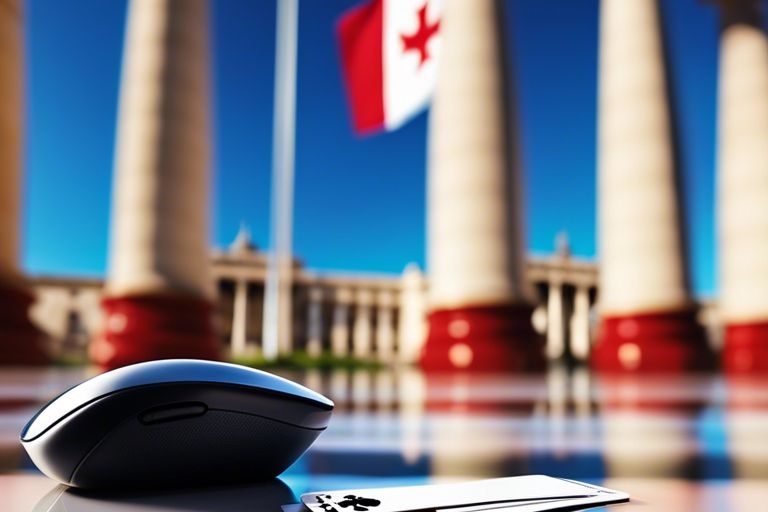Legislation Lowdown – Malta’s iGaming

Over the years, Malta has become a hub for iGaming companies, attracting businesses from around the world to establish their operations on the island. Understanding the legislation surrounding iGaming in Malta is crucial for anyone looking to enter this lucrative industry. Malta offers a favorable regulatory environment for iGaming companies, with a well-established licensing system and tax incentives that make it an attractive destination for businesses. However, it is important to stay informed about the latest regulations and compliance requirements to ensure long-term success in the market.
Historical Framework of iGaming Laws in Malta
Initial Legislation and Market Opening
One of the pioneering moves in the iGaming industry, Malta established its first regulatory framework in 2004 with the Malta Remote Gaming Regulations. This legislation not only legalized online gambling but also provided a platform for operators to apply for licenses and operate legally in the country, laying the foundation for Malta to become a leading hub for the iGaming industry.
Evolution of Regulatory Practices
Framework changes over the years have seen Malta Gaming Authority (MGA) enhancing its regulatory practices to adapt to the evolving landscape of online gaming. Regulatory updates have focused on strengthening player protection measures, ensuring fair gameplay, and combating money laundering and fraud. The regulatory framework also enforces strict guidelines on responsible gambling to safeguard players.
Current Regulatory Landscape
The Malta Gaming Authority (MGA)
Some of the strictest regulations in the iGaming industry are enforced by the Malta Gaming Authority (MGA). Established in 2001, the MGA is responsible for overseeing all gaming activities in Malta and ensuring compliance with the law.
Key Legislation Governing iGaming
Regulatory oversight in Malta is governed by the Gaming Act, which sets out the legal framework for iGaming operators in the country. The Remote Gaming Regulations, enacted in 2004 and updated in 2018, provide detailed guidelines on licensing requirements, player protection, and responsible gaming measures.
For instance, the Remote Gaming Regulations outline the obligations of operators in terms of player verification procedures, responsible gambling initiatives, and anti-money laundering measures. Compliance with these regulations is crucial for operators seeking to obtain and retain a Malta gaming license.
Licensing Requirements and Procedures
For those looking to enter the Maltese iGaming market, obtaining a license from the MGA is a rigorous process. The application requires detailed information on the operator’s ownership structure, financial stability, player protection measures, and responsible gaming policies.
Gaming operators must also adhere to strict technical standards for their gaming platforms and undergo regular audits to ensure compliance with MGA regulations. Failure to meet these requirements can result in severe penalties, including the suspension or revocation of the license.
Compliance and Player Protection
An integral part of the regulatory landscape in Malta is the emphasis on compliance and player protection. Operators are required to implement robust measures to prevent underage gambling, promote responsible gaming, and protect vulnerable players from harm.
With increasing scrutiny from regulatory authorities and growing awareness of player rights, operators in Malta must prioritize compliance and player protection to maintain their reputation and credibility in the iGaming industry.
Economic and Social Impacts
Contributions to Malta’s Economy
Not only has the iGaming industry significantly boosted Malta’s economy, but it has also positioned the country as a key player in the global market. The sector’s contribution to Malta’s GDP, job creation, and overall economic growth cannot be understated.
Responsible Gaming and Societal Effects
Impacts of iGaming extend beyond economic benefits, with a focus on responsible gaming and societal effects. Malta’s regulatory framework emphasizes player protection, addiction prevention, and social responsibility. This comprehensive approach ensures that gaming operators comply with strict guidelines to safeguard players and the community.
Malta’s proactive stance on responsible gaming sets a benchmark for other jurisdictions worldwide. The country’s efforts to promote a safe and transparent gaming environment are commendable. Understanding the importance of balanced regulations and continuous monitoring is key to fostering a sustainable gaming industry.
Future Outlook and Amendments
Trends in iGaming Legislation
For the latest trends in iGaming legislation, it is important to keep an eye on Malta. With its proactive stance on regulating the industry, Malta continues to set the standard for other jurisdictions worldwide. This includes the evolution of laws to address emerging technologies, player protection measures, and compliance requirements.
Anticipated Reforms and Industry Growth
Legislation in Malta is poised for further enhancements to bolster the iGaming sector’s growth. Anticipated reforms may focus on enhancing responsible gaming measures, streamlining licensing processes, and fostering innovation in the industry. Industry stakeholders are eagerly awaiting these developments for a more robust and competitive iGaming landscape.
Future advancements in Malta’s iGaming legislation are expected to enhance regulatory frameworks further, promote sustainable industry growth, and solidify Malta’s position as a global leader in the iGaming sector. Stay tuned for updates on the progressive amendments shaping the future of iGaming in Malta.
To wrap up
As a reminder, Malta’s iGaming legislation is known for its comprehensive framework that provides a secure and attractive environment for operators in the industry. With the Malta Gaming Authority regulating the sector effectively and consistently updating its laws to keep pace with technological advancements and market trends, Malta remains a top choice for iGaming businesses worldwide. By adhering to the stringent requirements set forth in Maltese legislation, companies can benefit from a reputable jurisdiction that promotes transparency, fairness, and player protection. Overall, Malta’s iGaming legislation sets a high standard for the industry and continues to be a benchmark for regulation in the global gaming market.
FAQs:
What is the history of iGaming legislation in Malta?
Malta established its first regulatory framework in 2004, legalizing online gambling and laying the foundation for its status as a leading hub for the iGaming industry.
What role does the Malta Gaming Authority (MGA) play in iGaming regulation?
The MGA enforces strict regulations, overseeing all gaming activities in Malta to ensure compliance with the law and promoting player protection.
What are the key licensing requirements for iGaming operators in Malta?
Operators must provide detailed information on ownership, financial stability, player protection, and adhere to technical standards for their platforms.
How does Malta prioritize compliance and player protection in iGaming?
Malta emphasizes robust measures to prevent underage gambling, promote responsible gaming, and protect vulnerable players from harm.
What are the anticipated reforms and future outlook for iGaming legislation in Malta?
Anticipated reforms may focus on enhancing responsible gaming measures, streamlining licensing processes, and fostering innovation in the industry.
Michael
With over 20 years experience in web design, SEO and website promotion I always give you an expert advice in regard to any issues related to your Site Design, SEO, Internet Marketing, Promotion, Backlinks, Site Content. In order to help you find out what is missing or can be improved and get higher rankings in Google and more traffic.
Recommended Posts

Legal Nuances of Operating an Online Casino
May 17, 2024

The World of Wearable iGaming Tech
May 17, 2024

Going Live – Surge of Live Stream Gambling
May 17, 2024




